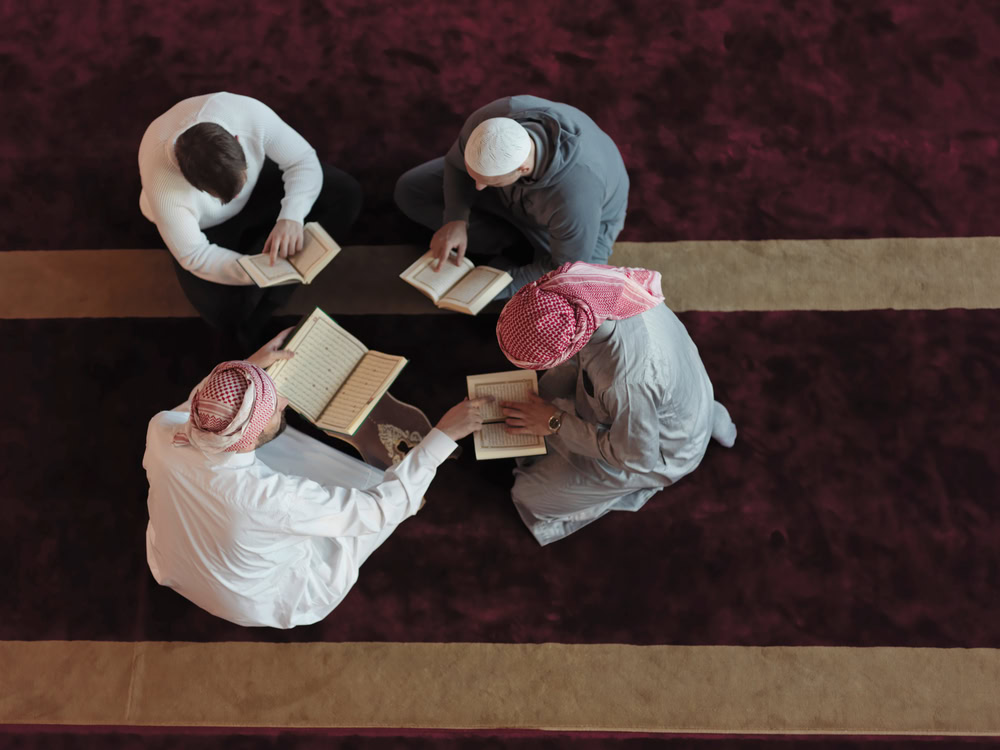Can I Study With and Take Ijaza (Authorization) from a Shaykh with Doubtful Beliefs?
Answered by Shaykh Irshaad Sedick
Question
Is it permissible to study with and take authorization (Ijaza) from a well-known Shaykh if I have doubts about his beliefs (‘Aqida) on certain issues?
Answer
In the Name of Allah, the All-Merciful, the Especially Merciful.
The permissibility of studying with a Shaykh and taking Ijaza (formal authorization to transmit knowledge) depends on the nature of the doubts you hold.
- If the Shaykh’s Beliefs (‘Aqida) Deviates from Ahl al-Sunna wa’l-Jama‘a – If the Shaykh holds beliefs that place him outside the fold of Sunni in fundamental matters—such as the attributes of Allah, the nature of prophecy, or key tenets of faith—then one should avoid taking knowledge from him, especially in religious sciences.
- If the Differences Are Within Sunni Orthodoxy – If the doubts concern secondary issues within Ahl al-Sunna wa’l-Jama‘a, such as certain theological interpretations or scholarly debates, then studying with him may still be permissible, provided one is well-grounded in sound belief and exercises discernment.
- If the Subject Matter Is Unrelated to Beliefs (‘Aqida)– If the Shaykh’s theological views do not affect the subject being studied—for example, in Arabic grammar, Tajwid, or similar—then it may be permissible to learn from him while remaining cautious about his personal theological positions.
- Ensuring Strong Foundations in Sound Beliefs (‘Aqida) – If a student is still developing their understanding of faith, it is preferable to seek teachers who firmly uphold the mainstream Sunni tradition to avoid confusion.
Scholarly Guidance on Learning
The scholars of the past emphasized discernment in taking knowledge. Imam Muhammad ibn Sirin (Allah have mercy on him) said:
“Indeed, this knowledge is religion, so be careful whom you take your religion from.” [Muslim]
Imam Malik (Allah have mercy on him) advised against taking knowledge from those who openly follow their desires or whose understanding of religion is flawed.
Conclusion
If the Shaykh’s deviations in beliefs (‘Aqida) place him outside of Ahl al-Sunna wa’l-Jama‘a, then it is best to avoid taking knowledge from him. However, if the doubts concern secondary issues within Sunni Islam or do not impact the field of study, it may still be permissible while exercising caution. In all cases, seeking knowledge from upright, reliable scholars who adhere to Sunni orthodoxy is the safest approach.
And Allah knows best.
[Shaykh] Irshaad Sedick
Checked and Approved by Shaykh Faraz Rabbani
Shaykh Irshaad Sedick was raised in South Africa in a traditional Muslim family. He graduated from Dar al-Ulum al-Arabiyyah al-Islamiyyah in Strand, Western Cape, under the guidance of the late world-renowned scholar Shaykh Taha Karaan (Allah have mercy on him), where he taught.
Shaykh Irshaad received Ijaza from many luminaries of the Islamic world, including Shaykh Taha Karaan, Shaykh Muhammad Awama, Shaykh Muhammad Hasan Hitu, and Mawlana Abdul Hafeez Makki, among others.
He is the author of the text “The Musnad of Ahmad ibn Hanbal: A Hujjah or not?” He has been the Director of the Discover Islam Centre, and for six years, he has been the Khatib of Masjid Ar-Rashideen, Mowbray, Cape Town.
Shaykh Irshaad has fifteen years of teaching experience at some of the leading Islamic institutes in Cape Town). He is currently building an Islamic podcast, education, and media platform called ‘Isnad Academy’ and has completed his Master’s degree in the study of Islam at the University of Johannesburg. He has a keen interest in healthy Prophetic living and fitness.
